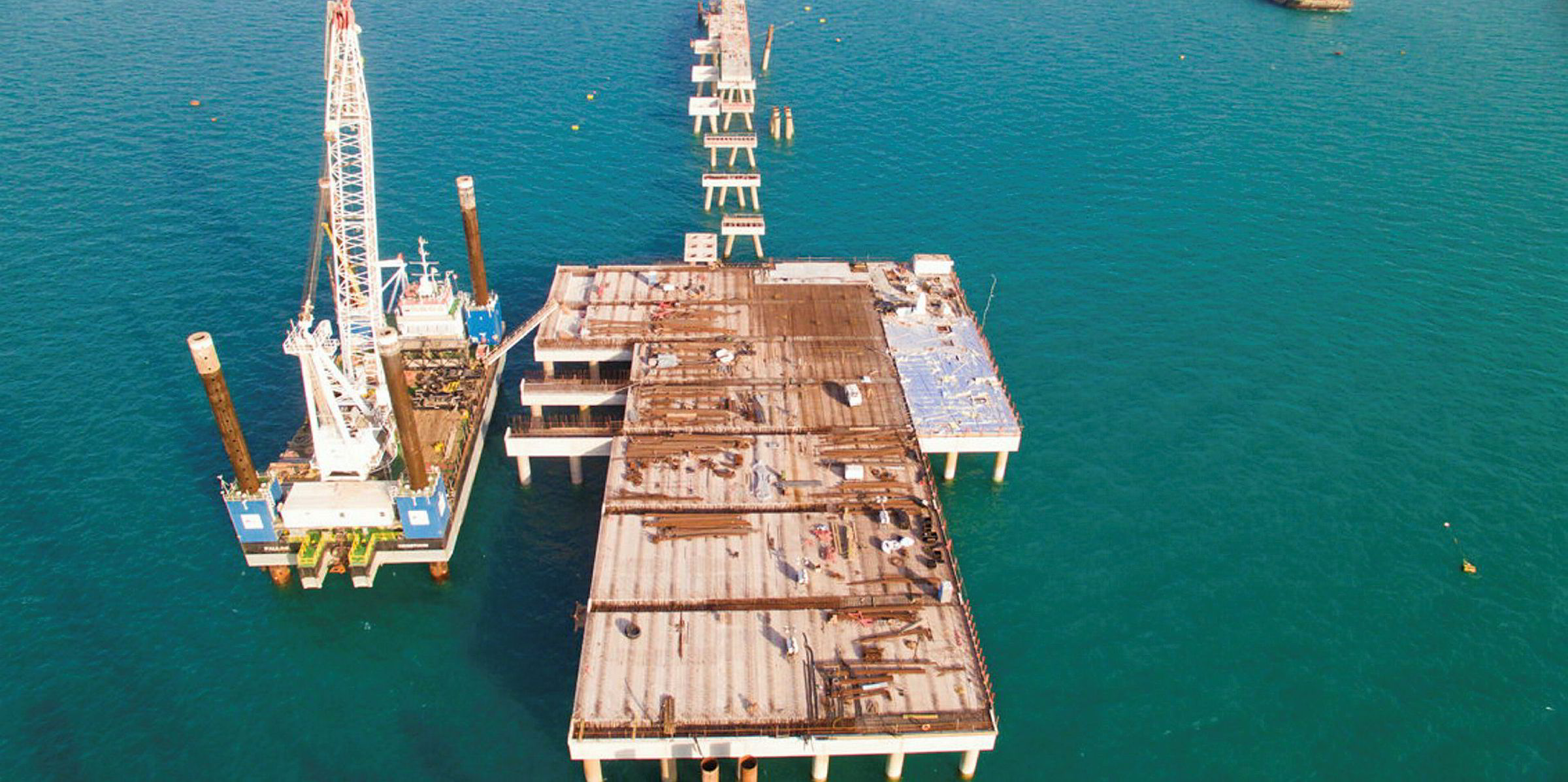An LNG floating storage unit (FSU) controlled by Teekay LNG Partners has left South Korea en route to become the centrepiece of Bahrain's first LNG import project.
The 173,400-cbm newbuilding Bahrain Spirit was due to arrive off Singapore this week, tracking data shows.
If we can do more projects like Bahrain, which are 20-year projects for regas, we are happy to do those
The vessel, which was contracted as an LNG carrier but modified to serve as an FSU for the Bahrain LNG project in which Teekay has a 30% stake, is due to go into service in its new role towards the end of the first quarter of next year.
The FSU delivers to the project this month and will be engaged in commissioning work, possibly shipping in a cargo, until the project’s planned start-up.
Teekay Gas Services president and chief executive Mark Kremin told TradeWinds that this will be the company's first venture in LNG terminal ownership.
The company has been seen bidding on a number of jobs to provide floating storage over the last few years and until earlier this year, Teekay listed a floating storage and regasification unit, the 138,000-cbm Excelsior (built 2005) held in joint venture with Exmar, in its fleet. But the stake in this vessel was sold to Excelerate Energy late last year.
Downstream focus
Teekay’s downstream LNG focus is now Bahrain LNG, which will offer 800 million standard cubic feet per day of capacity from its onshore regasification.
“If we can do more projects like Bahrain, which are 20-year projects for regas, we are happy to do those,” Kremin said. “We would certainly look at more of those.
“When it comes to the floating regas space — as we understand it — there are probably eight to nine uncommitted vessels. We think that in the long term, it may be great business but in the short term I think it is over-built.
“I think these folks are going to have to play it for some type of commodity rates with their speculative FSRUs.”
He said this is indicative of Teekay selling the Excelsior.
“I guess that was indicating we are not very bullish in the near term. I think it is a bit challenged,” he said.
Kremin believes companies wanting to join some of these projects may need to order a speculative FSRU.
“We just think it is a bit over-ordered right now,” he said.
“If there were a long-term opportunity, we would definitely do it. The regas technology is not too complicated and is certainly adjacent to what we do.
“We would definitely be on the lookout for projects where a speculative FSRU is not the clear winner.”





